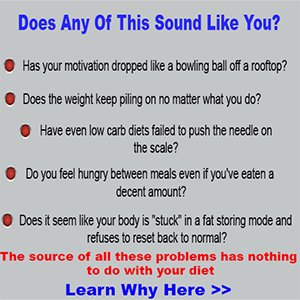One Easy Way To Reduce Anxiety?
Anxiety disorders are the most common, yet untreated, mental disorders currently in the US.
Anxiety disorders, which may be caused from genetics, brain chemistry, family history, and adverse life events, cost an estimated 42 billion dollars per year in healthcare costs.
And this is roughly one-third of the total healthcare costs in the US!
Current statistics show that over 18 percent of our population suffer from anxiety.
This equals an astounding 40 million adults!
Although anxiety disorders are very treatable, there are very few people that seek, and get the appropriate treatment.
And, I may have forgotten to mention this, people who suffer from anxiety disorders are three to four times MORE likely to see a doctor, and SIX TIMES more likely to be hospitalized.
Obviously, the correct course of medication and psychological help may reduce anxiety and help people live a richer, fuller life.
However, did you know that the omega-3 fatty acid DHA may also been linked to anxiety?
But in a good way!
DHA and Anxiety
Research has shown that omega-3 fatty acids may benefit people with mental health issues.
In fact, it has been linked to improvements in dementia, memory, cognition, and in some cases, Alzheimer’s disease.
However, according to a new study, very little research has been done on the different forms of omega-3 fatty acids.
Until now!
This study shows that including omega-3 fatty acids, specifically DHA, into your nutrition plan, may result in a lower risk for anxiety.
And this may be good news for many people!
The researchers randomly selected 935 women, between the ages of 20 and 93, and assessed dietary patterns for omega-3 fatty acid intake and a GHQ-12 evaluation.
Just for your information: The GHQ-12 evaluation is a series of tests that evaluate psychological symptoms and includes a clinical interview to assess depression and anxiety scores.
Here’s what they found:
First, they found that the intake of omega-3 fatty acids was far BELOW the recommended daily intake (310mg/day).
Secondly, they found that DHA was the only omega-3 fatty acid that may be directly linked to both depression and anxiety.
But, here is where the results MATTER!
When the researchers assessed for depression, they found that people with the HIGHEST DHA levels (the second tertile) were 70 percent LESS LIKELY to suffer from depressive disorders.
And…
They showed that people with the HIGHEST intake of DHA were 50 percent LESS LIKELY to have anxiety disorders.
AMAZING!
And, they showed that people who ate fish LESS THAN ONCE PER WEEK, had HIGHER GHQ-12 scores, and that those scores were HIGHER in smokers with lower fish intake.
Their conclusions:
“These are the first observational data to indicate a role for DHA in anxiety disorders.”
Take Home Message
If you suffer from anxiety or anxiety disorders, then you should consult your doctor in order to get the best course of treatment for reducing your symptoms and potentially controlling your anxiety.
But if you do NOT suffer from anxiety, and are looking for a way to reduce your risk, then you may want to do one, or more, of the following:
You could increase your fatty fish intake…
You should increase the amount of fatty fish, like salmon for instance, into your daily or weekly nutrition plan.
This could boost your intake of omega-3 fatty acids, specifically DHA, which has been shown to benefit brain health, and may even
reduce your risk for anxiety.
However, be careful of the kind of fish you eat.
Farmed fish, as opposed to wild-caught fish, may contain MORE omega-6 fatty acids and less omega-3s, which could pose even more health risks.
You could use a daily omega-3 fatty acid supplement…
Supplements may be a great way to boost your omega-3 fatty acid intake, without having to eat fish.
Plus, it is something that can be taken daily, and have the potential to support your health, by supplying a good amount of omega-3 fats.
But before you take a fish oil supplement, you should know that krill oil may be more effective than regular fish oil for delivering healthy doses of EPA and DHA.
You can include flaxseed oil, flaxseeds, or flaxseed meal…
Flaxseeds provide the plant-based form ALA, which is one of the omega-3 fatty acids.
Although flaxseed oil and flaxseeds are a great way to boost your intake, you should also understand one thing:
ALA needs to be converted into omega-3 fatty acids but it takes a few additional steps to process it.
And, depending on what your body needs at the time, it may not use all the ALA once it enters into your body.
The most important take-home message is this:
Including more omega-3 fatty acids into your diet, through weekly fish intake, a daily krill oil supplement, or flaxseeds or flaxseed oil, may reduce your risk for developing anxiety, depression, or suffering from an anxiety disorder.
One Of The Easiest Ways To Include DHA Into Your Daily Nutrition >>
References:
Jacka FN, Pasco JA, Williams LJ, Meyer BJ, Digger R, Berk M. Dietary intake of fish and PUFA, and clinical depressive and anxiety disorders in women. Br J Nutr. 2012. Published ahead of print.
About Jayson Hunter & Jaylab Pro

Jaylab Pro was founded by Registered Dietitian Jayson Hunter. Jayson has been recognized as one of America's foremost weight loss experts by America's Premier Experts™. He has also been featured in USA Today for this accomplishment. Jayson is also a best-selling author having co-authored multiple books in health & fitness and business growth. Jayson and the Jaylab Pro team are proud to create content that helps improve the lives of millions of people around the world. We hope you enjoy it just as much as others have.
 If you order a JayLabPro SmartShip product or any Combo Package, we will automatically ship you a new supply of the product or products you have ordered every month, starting 30 days after your initial order is shipped, and continuing until you cancel. The credit card you are using today will be billed the lowest available price for those product or products when your order is shipped, but shipping will be FREE. You may log into your customer account or call our customer service department toll-free at 1-888-9GETPRO (1-888-943-8776) between the hours of 8am – 9pm EST Mon-Fri to cancel future shipments, customize the timing of your shipments, or change the credit card used for billing.
If you order a JayLabPro SmartShip product or any Combo Package, we will automatically ship you a new supply of the product or products you have ordered every month, starting 30 days after your initial order is shipped, and continuing until you cancel. The credit card you are using today will be billed the lowest available price for those product or products when your order is shipped, but shipping will be FREE. You may log into your customer account or call our customer service department toll-free at 1-888-9GETPRO (1-888-943-8776) between the hours of 8am – 9pm EST Mon-Fri to cancel future shipments, customize the timing of your shipments, or change the credit card used for billing.










